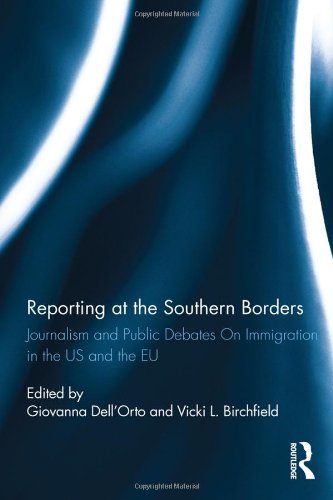

Most ebook files are in PDF format, so you can easily read them using various software such as Foxit Reader or directly on the Google Chrome browser.
Some ebook files are released by publishers in other formats such as .awz, .mobi, .epub, .fb2, etc. You may need to install specific software to read these formats on mobile/PC, such as Calibre.
Please read the tutorial at this link: https://ebookbell.com/faq
We offer FREE conversion to the popular formats you request; however, this may take some time. Therefore, right after payment, please email us, and we will try to provide the service as quickly as possible.
For some exceptional file formats or broken links (if any), please refrain from opening any disputes. Instead, email us first, and we will try to assist within a maximum of 6 hours.
EbookBell Team

4.3
38 reviewsUndocumented immigration across the Mediterranean and the US-Mexican border is one of the most contested transatlantic public and political issues, raising fundamental questions about national identity, security and multiculturalism—all in the glare of news media themselves undergoing dramatic transformations.
This interdisciplinary, international volume fills a major gap in political science and communication literature on the role of news media in public debates over immigration by providing unique insider’s perspectives on journalistic practices and bringing them into dialogue with scholars and immigrant rights practitioners.
After providing original comparative research by established and emerging international affairs and media scholars as well as grounded reflections by UN and IOM practitioners, the book presents candid, in-depth assessments by nine leading European and North American journalists covering immigration from the frontlines, ranging from the Guardian’s Southern Europe editor to the immigration reporter for the Arizona Republic. Their comparative reflections on the professional, institutional and technological constraints shaping news stories offer unprecedented insight into the challenges and opportunities for 21st century journalism to affect public discourse and policymaking about issues critical to the future of the transatlantic space, making the book relevant across a wide range of scholarship on the media’s impact on public affairs.